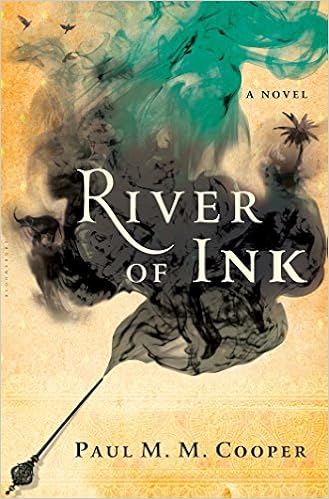The protagonist is Asanka, a nebbishy court poet to King Parakrama and Queen Dayani of Sri Lanka in the Sinhalese royal capital of Polonnaruwa. After the crown prince Kalinga Magha arrives from the mainland and executes the royal family, Asanka is given the task of translating the epic poem Shishupala Vadha from the more academic Sanskrit into vernacular Tamil in order to promote the culture of the invaders as well as to raise the new king's status for posterity as a bringer of literature, since he has a chip on his shoulder about being the bastard youngest son of his royal family. Unfortunately, the Shishupala Vadha is incredibly difficult to translate well, being both dense in complex poetic imagery and heavily reliant on ingenious structural tricks (anagrams, palindromes, double meanings, visual puns, etc), and Asanka's burden of an impossible deadline is additionally complicated by the new king's desire to take Asanka's mistress Sarasi as the new queen. But if Asanka can keep his wits he can keep his head, as he plans an escape with Sarasi and embeds secret messages of defiance into his translation for the commoners to rally around. This subversion of Magha's desire for fame with unflattering comparisons to infamous tyrants is a sort of inverse of Virgil's flattering of Augustus in the Aeneid by linking the imperial dynasty to glorious Homeric myth.
At first I had some complaints about the novel's characters and themes. Even though it's written as a first-person diary/letter to Sarasi, Asanka generally comes off like a rich but uncharismatic dilettante, so it's hard to figure out why the two other main characters put up with him so much. Sarasi is much tougher and self-reliant than he is, to his chagrin, and her affection for him doesn't really seem warranted by his actions, which mostly range from uncaring and distant to cowardly and embarrassing. It seems like she would have dumped him a long time ago, even despite his influence with the new king, and the enduring sincerity of her feelings is out of proportion to anything he does on the page. Magha's continual trust in Asanka until almost the very end of the novel is even odder: a brutal conqueror without a lot of compunctions against killing those who displease him overlooks a long series of incredibly suspicious acts by this holdover poet from the old regime, and Asanka does not seem to have such a high Value Over Replacement Poet that Magha wouldn't have had him executed and replaced several times over. I realize that keeping Asanka alive was necessary to accomplish a few threads of dramatic irony - pay attention to the repeated lament that "poetry makes nothing happen", reader! - yet the sudden appearance of drought-breaking rain at the climax of the novel where the subversive power of literature is exhibited is just too perfect. Even Asanka's fear of elephants gets a callback right before he's reassured that, actually, poets are the real heroes, and the ending revelation of who had been writing Asanka helpful secret messages related to his work is groan-inducing.
But on further reflection these criticisms miss why Cooper set those things up that way. The novel is a deliberate echo of the great poetic epic that Asanka is translating, and just as the deliberately florid similes that various characters deploy attempt to connect the frequently-insufficient power of language to the real qualities of the thing they're trying to describe, the often-stylized actions of the characters connect the messiness of reality to the larger-than-life archetypes that populate the Shishupala Vadha. Asanka doesn't seem good enough for Sarasi to the reader; well, he doesn't seem good enough to himself either! Especially not when all he does is scribble words on the page, what a waste of time... until his works turns out to be actually meaningful to people. It's easy to lose count of how often the characters, Asanka included, denigrate literature ("poetry makes nothing happen"), but we're fooling ourselves if we think it doesn't matter, and even if words aren't real, they have real effects through our beliefs. Cooper did a marvelous job bringing this world of smoke, ink, and rain to life. A fantastic debut novel.

No comments:
Post a Comment
Note: Only a member of this blog may post a comment.